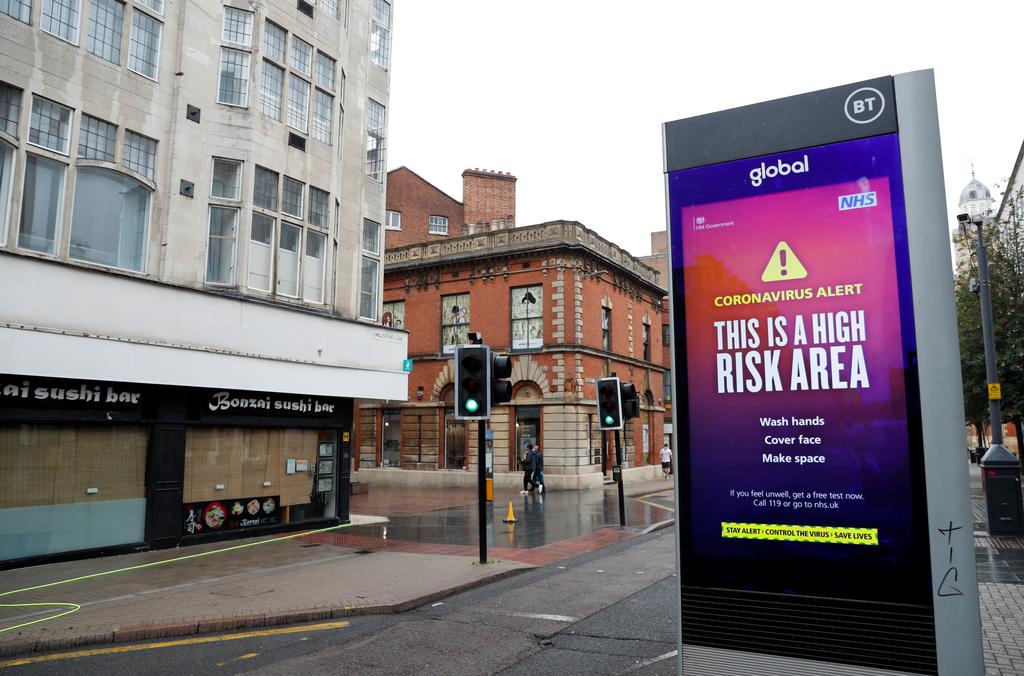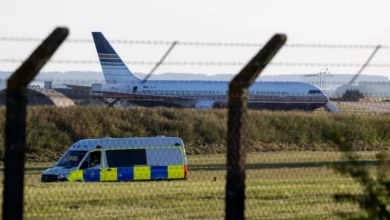
LONDON (Reuters) – Britain plans to bring in regular, population-wide testing for COVID-19 so it can suppress the spread of the virus and ease restrictions that have crippled its economy without triggering a second wave in one of the worst-hit countries in the world.
Health Secretary Matt Hancock said the government was trialling a range of new, faster tests that can give instant results and hoped to roll them out towards the end of the year.
Prime Minister Boris Johnson’s government has been criticised by political opponents and health experts for being too slow to go into lockdown and in rolling out testing to know how far the virus had spread.
Britain now has the highest death toll in Europe, at more than 50,000, and the deepest economic contraction of any major advanced economy.
“The mass testing, population testing, where we make it the norm that people get tested regularly, allowing us therefore to allow some of the freedoms back, is a huge project in government right now,” Hancock told BBC Radio.
He said the country’s research laboratories at Porton Down were trialling new saliva tests that do not need to go to a laboratory, so they can deliver faster results.
“There are new technologies coming on track which we are buying and testing now,” he said. “We’ll ramp it up certainly over the remainder of this year.”
RUNNING OUT OF TIME
Widespread testing is seen as one way to reopen the economy, which suffered a record 20 percent contraction in the second quarter and is expected to see unemployment soar when the government ends its huge job subsidy programme in October. “Hard times are here,” finance minister Rishi Sunak said last week.
New Zealand Prime Minister Jacinda Ardern has promised mass testing there after its first local COVID-19 case in 102 days.
Britain’s government says it currently has a daily testing capacity of more than 335,000, although in August between 150,000 and 190,000 tests have actually been processed on any given day.
“We’re only using about half the testing capacity we have now,” former Prime Minister Tony Blair told Sky News, adding the need for lockdowns and quarantine rules for travellers that damage business could be obviated by more testing.
“We are running out of time, and that’s why it’s very urgent,” Blair said.
Some other countries are utilizing a higher proportion of overall testing capacity. Germany’s testing lab association said on Tuesday the country had been using about 750,000 of a weekly capacity of a million tests.
London’s Heathrow Airport said on Wednesday that a testing area was ready to open should Britain approve a rule change and allow two tests, one on arrival and one some days later, to cut the quarantine time for travelers from the current two weeks.
Cases in Britain have started to rise again, with more than 1,000 positive results on eight of the last 10 days.
The government said on Wednesday it would expand a testing study being run by the Office for National Statistics from 28,000 people now to 150,000 by October and ultimately to 400,000 to help establish a better national picture of the pandemic and spot local outbreaks.
Additional reporting by Alistair Smout and Sarah Young in London and Ludwig Burger in Frankfurt; Editing by Michael Holden and Catherine Evans
Image: A warning sign with hygiene and safety guidelines is pictured in an almost empty street as restrictions in the city have started to ease, amid the outbreak of the coronavirus disease (COVID-19), in Leicester, Britain, August 19, 2020. REUTERS/Paul Childs




